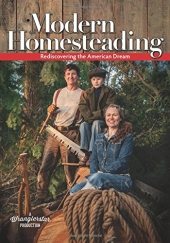posted 10 years ago
Wow, this is an interesting subject.
First there is the actual dictionary definition of a homestead : The dwelling house and its adjoining land where a family resides.
Technically, and pursuant to the modern homestead exemption laws, an artificial estate in land, created to protect the possession and enjoyment of the owner against the claims of creditors by preventing the sale of the property for payment of the owner's debts so long as the land is occupied as a home.
Laws exempting the homestead from liability for debts of the owner are strictly of U.S. origin.
Under the English Common Law, a homestead right, a personal right to the peaceful, beneficial, and uninterrupted use of the home property free from the claims of creditors, did not exist.
Homestead rights exist only through the constitutional and statutory provisions that create them.
Nearly every state has enacted such provisions. The earliest ones were enacted in 1839 in the Republic of Texas.
Then there is the definition of homesteading:
A lifestyle of self-sufficiency. It is characterized by subsistence agriculture, home preservation of foodstuffs, and it may or may not also involve the small scale production of textiles, clothing, and craftwork for household use or sale. Pursued in different ways around the world — and in different historical eras — homesteading is generally differentiated from rural village or commune living by isolation (either socially or physically) of the homestead. Use of the term in the United States dates back to the Homestead Act (1862) and before.
To most people today if you say you are homesteading they get the idea that you are living on your own land, built your own house and raise most of the food you consume, ( this is what the folks in our town think of us and interestingly enough there are lots of people in our area that are doing this).
To me a modern homesteader is a person reaching back to the era of semi or even total self sufficiency, which even then depended on some trading and selling of goods to others.
In our Homestead Journey To quit or fail is not an option. The way one preservers is similar to getting on a ship back in the 1400's, there is no where to go other than forward.
For us, a trip to town is a fairly big deal since to get to town (by motor vehicle) takes around 20 minutes one way.
We still buy some of our food but every year we grow and raise more and will get to the point of only buying "staples" just like they did back in the 1800's westward expansion period.
We are also setting up so that when/ if the USA falls apart we will not be the ones panicking about food or shelter or anything else.
Since we don't have horses (yet) we are still very dependent on fossil fuels, but eventually we will get to making bio diesel fuel and have a vehicle that can use it.
We work our way through any difficulties and problems since we don't have a choice. The work will get done, it may take us longer because of a setback, but we will plug along at it until it is finished.
This is very much like the frontier days, those people worked through the problems and issues that came at them, their only choice other than doing that was to give up and go back east.
Some of them would starve to death, some would be killed and some would be captured.
The last case usually meant that they would survive well and learn the native ways, becoming part of the people. Unless it was Comancheros that captured you, in which case you probably were headed to Mexico and who knows what end.
If you start on the journey (what ever type of journey) then you should have the resolve to complete the journey, if you don't, then you probably should have not taken the first step out of the comfort zone you were in before.














 1
1









 1
1












